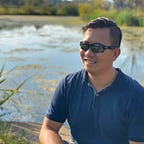I have recently been promoted to the rank of associate professor with tenure. Prior to the promotion, I went to an interview with our university’s Tenure and Promotion committee. Among the questions, one stuck with me the most: “What is your teaching philosophy?”
Is this a simple question?
At a glance, this seems to be a straightforward question. After all, I have been teaching for almost ten years, four of which with a full course load of four per semester. I still remembered my Teaching Statement from my application package, of which I was fairly proud. There and then, I blurted out the snippets: “ … has influenced the formation of my teaching philosophy, which is based on the following principles: utilizing dynamic and adaptive teaching strategies, promoting hands-on learning, encouraging collaborative interaction, and integrating new learning technologies.” I also added some thoughts on active learning and applying research-based pedagogical techniques.
On my way back to my office from the interview, it suddenly hit me. Did I really answer the question? After four years, during the tenure and promotion process, I realized that I described my teaching approaches, not my teaching philosophy! In other words, I know how I teach, but I don’t know upon which personal and moral principles I choose my teaching techniques. Why did I want to select adaptive teaching strategies, hands-on learning, collaborative interaction, etc? Is the answer as simple as because I want my students to be better? Then one can ask: “better at doing what? completing assignments? working on quizzes and exams? or receiving higher scores?” The answer could be expanded further and I could talk about how I want my students to succeed and get well-paying jobs and generally live a long happy life ever after. At this point, we can all see how unsatisfactory this line of answers is for this deceptively simple question. So, I do what every Computer Scientist was well trained to do. I googled the answer. The top result coming out of University of Minnesota’s Center for Education Innovation says “Your teaching philosophy is a self-reflective statement of your beliefs about teaching and learning.” Here are the keywords that I am looking for: reflection and belief.
Reflection
Since high school, I have always been fascinated by my teachers. From the way they drew a perfect circle on the chalk board for math or presented unfathomable thoughts hidden in literatures. My friends and I were quick to recognize how a good teacher could turn the most boring topic interesting. My belief then and up to recently was that I want to become a teacher that can make all classes interesting for students.
Becoming an assistant professor was the turning point that eventually changed that initial belief. Interesting is nice to have, but it is not enough. To truly learn, students have to be able to do more than just being interested in the topics. I realized about two semesters in that interesting lectures can help students focus in class and to some degree motivate them to attempt to do work outside of class. However, students, especially those coming from underrepresented backgrounds, face significant challenges. Many of mine works more than twenty hours a week while being in school. Others coming from underfunded school districts that were not able to prepare them as well as they should be. Therefore, they either do not have the time to do the work or waste a lot of time due to missing some assumed prerequisite knowledge. Gradually, my approaches to teaching have changed. In addition to interesting, I now attempt to include as much background knowledge and detailed steps as possible in my materials, besides the theoretical contents. A rough analogy is this, to feed someone who need to eat a lot quickly or someone who is not able to chew properly, you need to chop the food into smaller pieces!
As I write this reflective section, I have realized that all my approaches to developing my course materials in the recent years have been to attempt enable all students to learn. I want all my students to be able to consume knowledge from my classes and turn those into their own energy to move forward.
What is my belief
I have realized now that my belief comes not from my teaching statement but my diversity statement. In this document, I quoted Thomas R. Guskey, Professor of Educational Policy Studies and Evaluation at the University of Kentucky, in an article from the journal of Educational Leadership: “Those who enter the profession of education must answer one basic, philosophical question: Is my purpose to select talent or develop it? The answer must be one or the other because there is no in-between. If your purpose as an educator is to select talent, then you must work to maximize the differences among students. If, on the other hand, your purpose as an educator is to develop talent, then you go about your work differently. First, you clarify what you want students to learn and be able to do. Then you do everything possible to ensure that all students learn those things well.”
It is my belief that all students have the potential to learn regardless of their background. It is my belief that because of students’ background, they will come into my class with different level of preparations and expectations. It is my belief that as a professor, my responsibility is to minimize the negative impacts due to the lack of preparations and unrealistic expectations on students’ learning process. It is my belief that my role is to develop students’ talent by ensuring that they are able to learn the materials and to turn those into their own knowledge. And this is my teaching philosophy.
